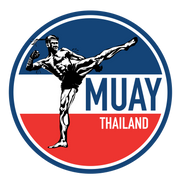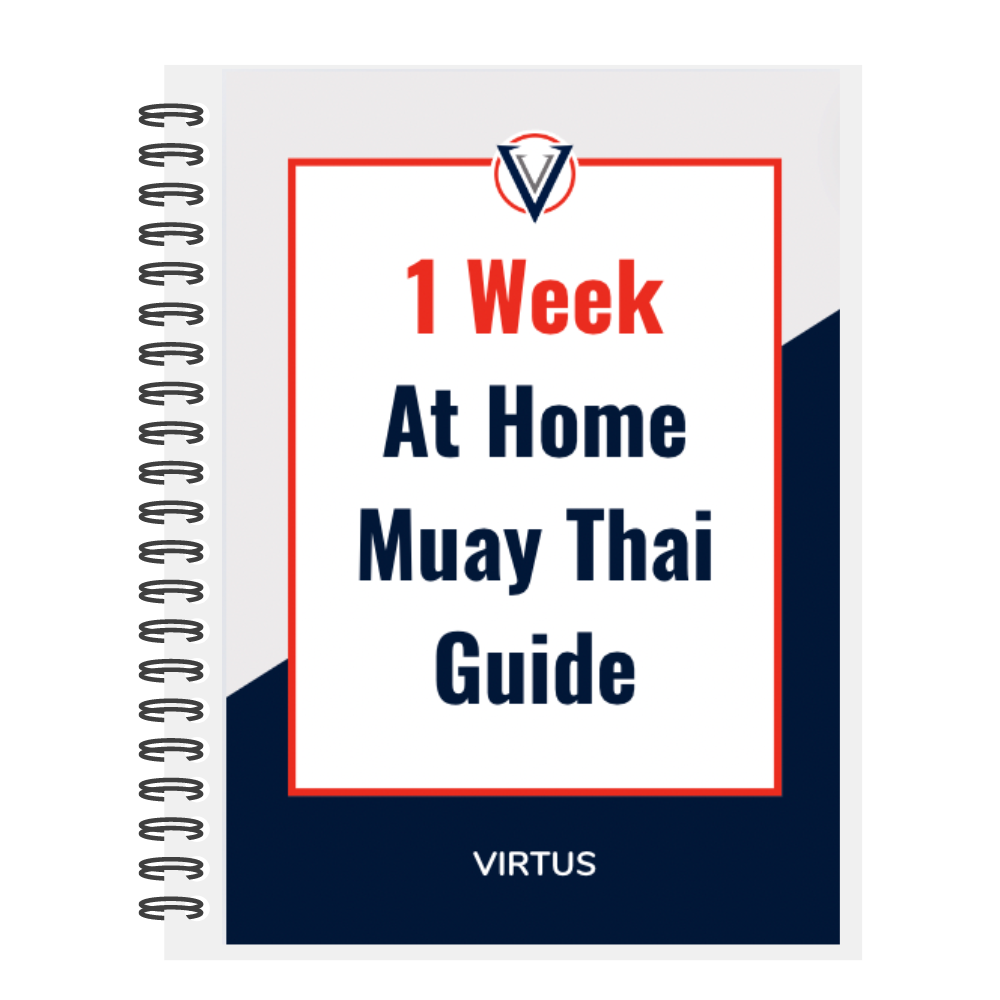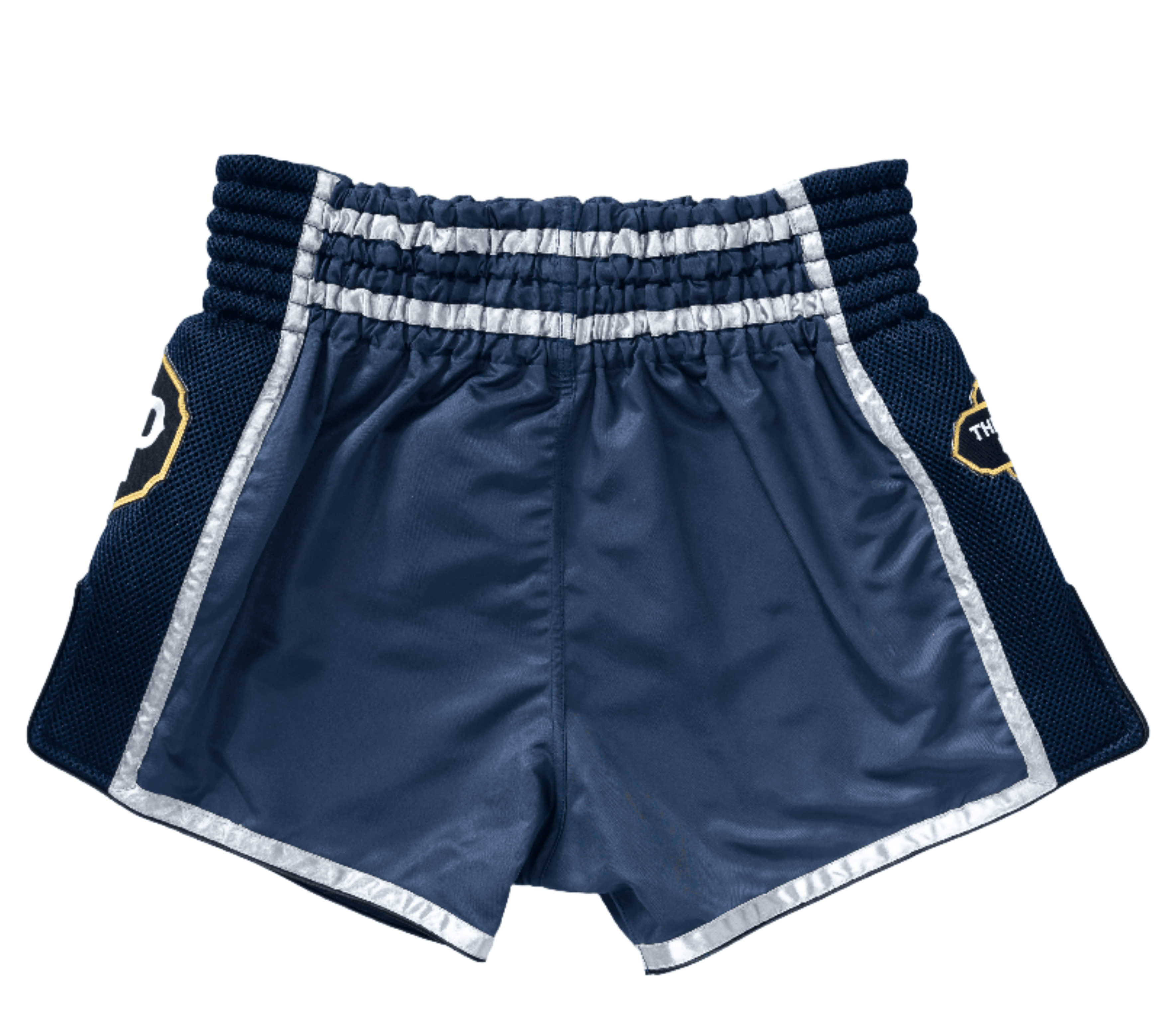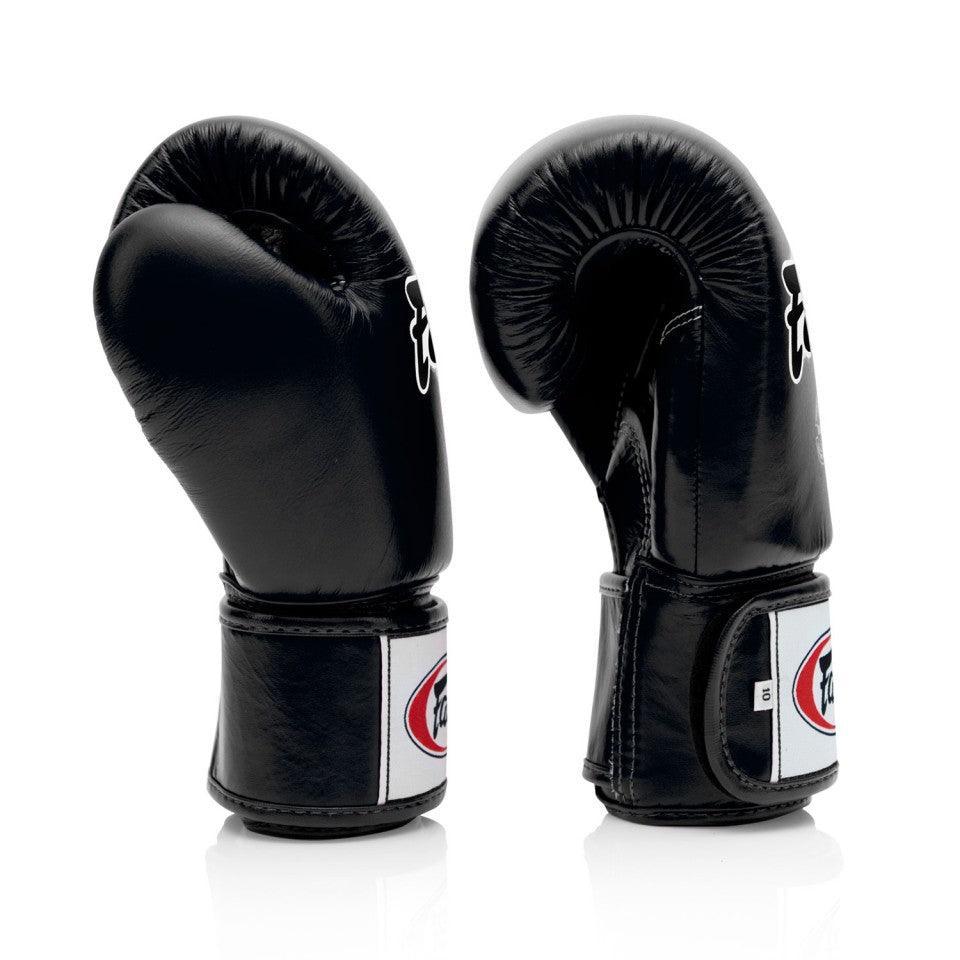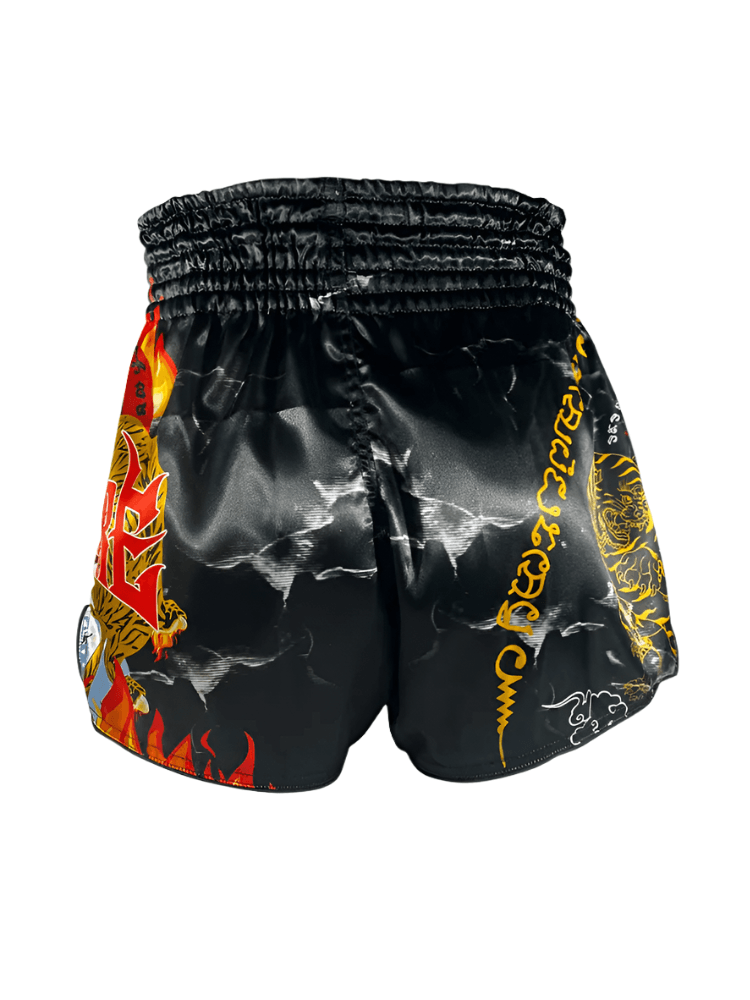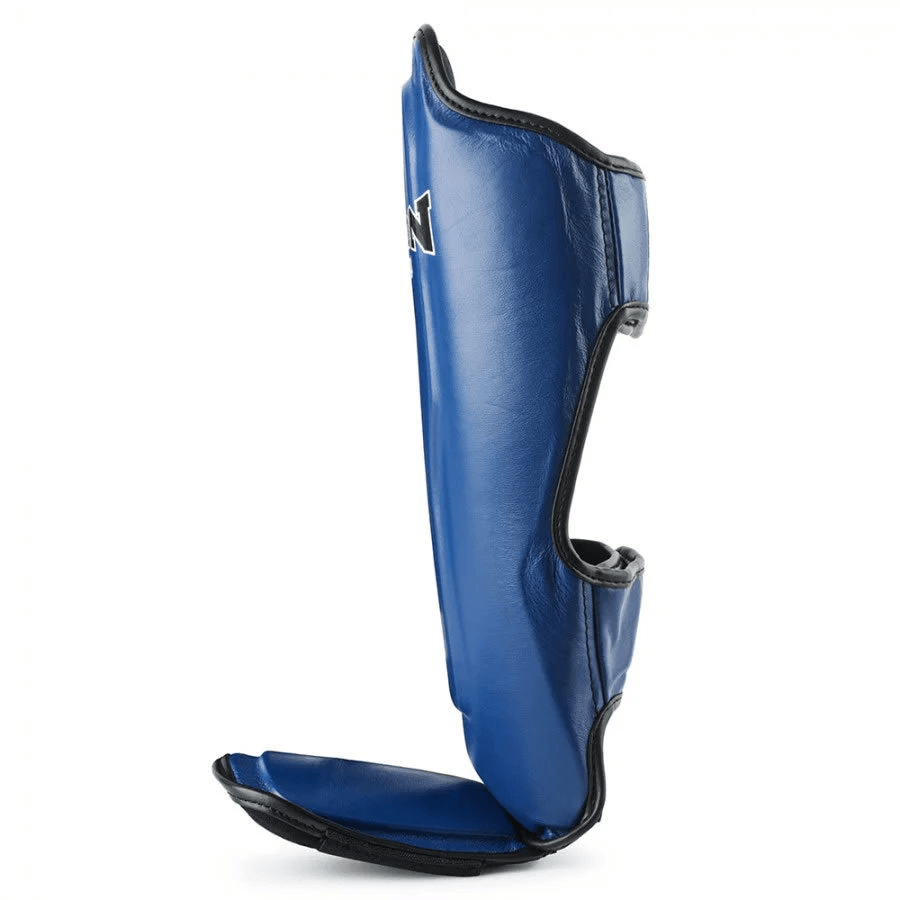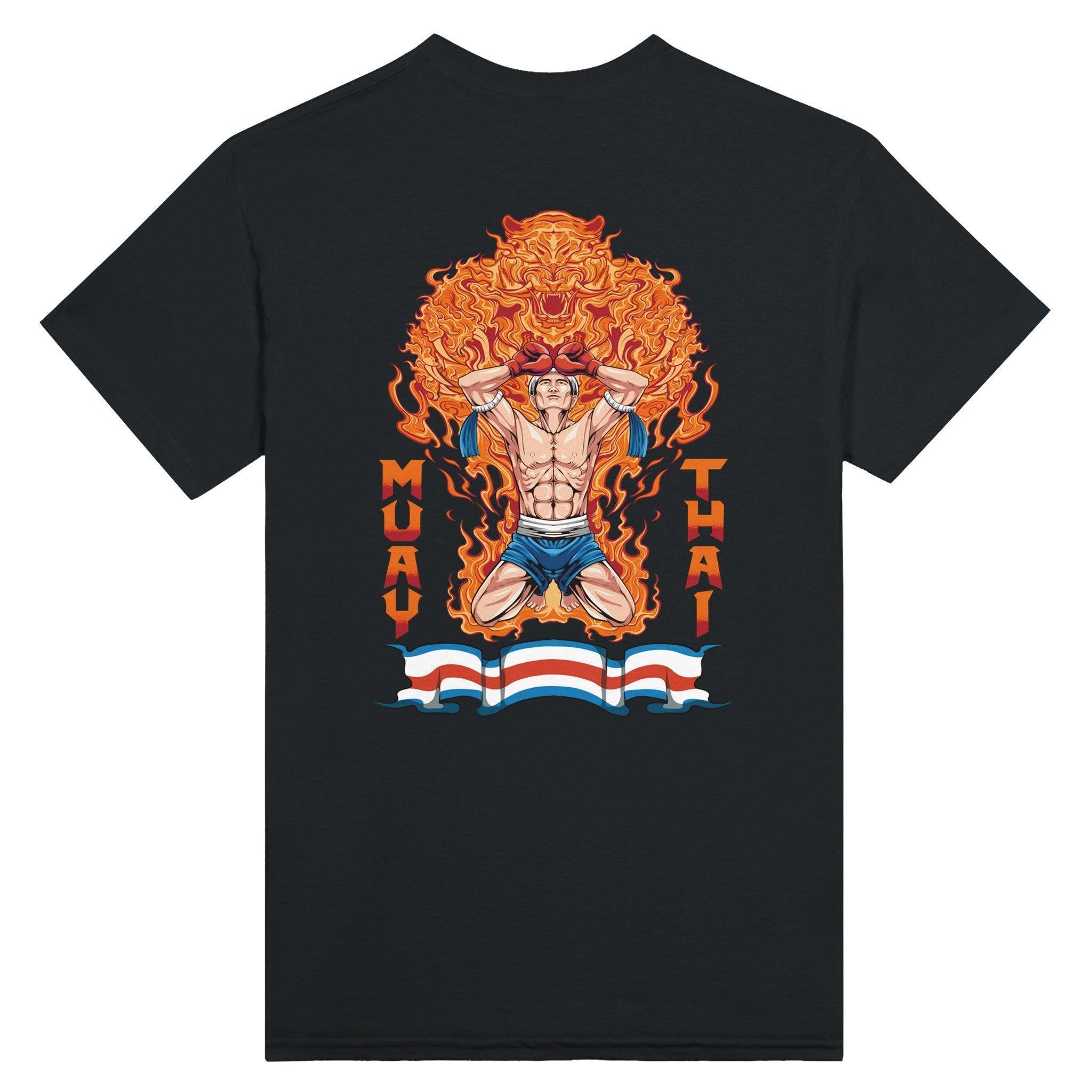Your Attitude and Approach
Your attitude and approach are crucial when starting Muay Thai as a beginner. It's essential to come into training with an open mind, ready to learn and push yourself. Remember that progress takes time, so stay patient and consistent in your training. Embrace the challenges and setbacks as opportunities for growth, and always maintain respect for the art and your trainers. With the right attitude and approach, you'll set yourself up for success in your Muay Thai journey.
We start out this guide with a look at the various personal aspects you need to take control of to succeed in Muay Thai.
Mindset
Muay Thai will drain you physically and mentally. Maybe not during your first session(s) and not every session, but it will in due course and on a regular basis. This is natural given how intense and demanding the sport is on every part of you. Yet it’s this exertion and output that builds strength, character and mental fortitude – all of which are major benefits of training Muay Thai consistently.
Knowing this will help you set expectations and understand that it’s not easy…but it is worth it. You need to approach Muay Thai with an open mindset, a willingness to learn and an appreciation of a challenge. From time to time you’ll feel pain, during and after sessions, and you need to recognise that this is part of your learning and growth. After sessions, it’s important to reflect on your training and try to piece together what’s working well and what needs further improvement. This mental preparation before training and continuous reflection after training will help you develop a growth mindset, enabling you to maximise training and enjoy the sport.
Lose your ego
As Muay Thai is a full-contact sport, there’s always an innate temptation to test out your strength and prove yourself against others. At first, this can be hard to shake off and sometimes you’ll need to endure some damage (or get put in your place by sparring partners) to learn the lesson. However, it’s incredibly important that you get rid of your ego and approach training with humility and a willingness to be the dumbest/weakest/most inept person in the room.
Ego will make you emotional and cloud your judgement. This makes it more difficult to understand technique and identify what you’re doing right and wrong. Ego will also make you mad at yourself as you will inevitably get things wrong time and time again when starting out.
The only time ego brings any sort of benefit is during hard preparation for competition and during competition itself. This is because you need to build confidence and mental confirmation that you are the best and are destined to win. Otherwise, ego will only hinder your training performance and quite possibly put training partners off working with you.

Listen
When you start learning any new skill, sport, hobby or topic, it’s important to sit back and soak up the knowledge. The Greek philosopher Epicetus was spot on when he said “we have two ears and one mouth so we can listen twice as much as we speak.” Take advantage of this by listening closely to your coaches, trainers and any study material you’re watching.
Unless you yourself are teaching (which you shouldn’t be as a beginner), you won’t be learning anything if you’re speaking, so keep quiet and focus on what’s being taught. Listen intently and ask questions if you’re unsure or need clarity – there’s nothing wrong with asking a demonstration to be shown again or to have something demonstrated at a different angle or at a slower pace.
Be consistent
Just as with anything new that you’re trying to learn, consistency is key. You can’t expect to see gains and develop the necessary strength, flexibility and technique to grow in the sport if you don’t put in the time and effort to learn and break yourself in. Malcolm Gladwell coined the popular belief that it takes 10,000 hours of intensive practice to achieve master of complex skills – and Muay Thai is certainly complex.
That’s not to say you need to put in 10,000 hours before you move on from beginner and start to see noticeable development, but it does illustrate the point that consistency of effort and time, along with hard work, over a prolonged period are needed to successfully develop. This is especially so in a demanding, intensive and sometimes exhausting sport like Muay Thai.
Study
Your learning shouldn’t be limited to the gym. In fact, watching, reading out and even talking about Muay Thai are all useful ways to accelerate your learning. Just like with any other subject or skill, practice, thought and reflection are all key to development.
Fortunately, there are plenty of ways to study Muay Thai while away from the gym. Whether it be watching live Muay Thai online (for instance on the One Championship app), watching Muay Thai fights and techniques on Youtube, reading about the history and culture of the sport or discussing the sport with friends (or like-minded peers online in forums). By doing so, you’ll get different perspectives on techniques, movement and skills in a different way and witness new approaches to training etc. which you can then take with you to the gym and try out.
Learn control
When starting out, it’s easy to underestimate your speed and power. Often you’ll find yourself throwing strikes with too much power and speed and regularly be off balance as a result. Balance is key to proper technique and it’s important you develop strong balance and rhythm as these are the foundation from which you employ strength and speed. When starting out though, it’s hard to understand the difference and how to control yourself.
To develop control, take things slow and work on retracting back to stance and original position after throwing strikes. For example, when kicking Thai pads, focus both on the outward motion and the motion of bringing your leg back to stance (retraction). Also, when hitting a punching bag, don't rush your strikes, take your time and bring the bag back to stationary between strikes or combinations so you can understand how you impact its movement. It takes muscles and flexibility to do this effectively and, once developed, you will have a solid foundation of control.
Embrace the pain
There’s a common phrase is Muay Thai gyms (especially in Thailand) that Muay Thai is pain. Perhaps a little dramatic but it does hold a lot of truth. Proper Muay Thai will test your physical and mental limits. It will leave you bruised, swollen and, sometimes, defeated. After some trainings, you’ll be physically marked, sore and sometimes struggle to sleep from pain. This is all because of the physicality of the sport and the fact that you’re striking solid surfaces that are resistant – whether it be bags, pads or people. Pain though, is only temporary.
Over time, your body will become conditioned and you’ll take damage less easily. You’ll become more flexible and accustomed to the training, resulting in less soreness and faster recovery. Knowing this will help you ride out the tough sessions and painful recoveries that are inevitable in the early days of training and help you understand that there truly is no gain without pain.
How To Learn Muay Thai Techniques
As a beginner in Muay Thai, understanding the techniques is essential for progress. Proper technique not only ensures efficiency in your strikes but also minimizes the risk of injury. Focus on each movement - from footwork to strikes to defensive maneuvers. Pay attention to your coach's instructions and be open to feedback for improvement.
Practice regularly outside of class to refine your skills and build muscle memory. Shadow boxing, heavy bag drills, and partner drills are great ways to enhance your technique and overall performance. Remember, consistency is key. The more you practice with diligence and dedication, the quicker you'll improve and see results in your Muay Thai journey. It's not just about physical strength, but also mental focus and discipline. Embrace the challenge, stay committed, and believe in your potential to grow as a martial artist. With perseverance and passion, you'll soon find yourself developing at pace.
Finding a good gym
Not all Muay Thai gyms are created equally. Some are great for fighters, but not so suitable for beginners. Some are great for beginners, but not so great for professionals. There are plenty that are great at both. And plenty that are just outright bad. Here are some tips to help you pick the right Muay Thai gym:
1. Research different gyms: Start by researching different gyms in your area that offer Muay Thai classes. Look at their websites or social media pages to get an idea of their facilities, trainers, and class schedules.
2. Visit the gym: Once you have a list of potential gyms, visit them in person. This is your chance to see the training environment, equipment, and meet the coaches. Pay attention to the atmosphere - a good Muay Thai gym should feel welcoming and supportive.
3. Talk to the trainers: Take the time to speak with the trainers or instructors at the gym. Ask about their experience, certifications, and teaching style. A good trainer will be knowledgeable, patient, and able to provide constructive feedback.
4. Check the class structure: Inquire about the class structure and how they cater to beginners. It's important to have a structured program that covers basic techniques, conditioning, and sparring, as a beginner in Muay Thai, finding the right gym is crucial to your learning journey.
By researching different gyms in your area and visiting them in person, you can assess the training environment and meet the coaches. Speaking with trainers about their experience and teaching style will give you insight into their expertise. Additionally, checking the class structure to ensure it is beginner-friendly with a focus on basic techniques and conditioning is essential for your growth in this martial art. Remember, choosing the right gym sets the foundation for your success in mastering Muay Thai.
We have a detailed breakdown of what you need to think about when assessing gyms here. We also have tips on what NOT to do at a new gym to help you avoid embarrassment.
The Importance of The Basics
Once you have found a good gym, it’s time to start your training in earnest. The most important thing for beginners is to focus on the basics. Muay Thai has a lot of complex techniques and combinations, but if you don’t have a strong foundation in the basics, you will struggle with more advanced techniques.
Make sure to pay attention during warm-ups and drills that focus on footwork, balance, and proper form for punches, kicks, knees and elbows. Don’t be afraid to ask questions or for extra help from your instructor or more experienced students.
It may seem tedious at first, but mastering the basics will make you a much better student & fighter in the long run. Some of the fundamentals are far more nuanced than they may seem too, so even if you feel you have them nailed down, you will come to learn new aspects of them as you develop. Remember, your basic strikes are the foundation of your skills and a good fighter can win a fight using only two or three weapons the entire match. So don't underestimate the importance of mastering these basic techniques.
Once you've nailed the basics, you can move onto more complex work and start to employ some variation to your training. This enables you to accelerate your development.
What are some common mistakes that beginners make when learning Muay Thai?
Common mistakes that beginners make when learning Muay Thai include:
1. Overlooking the importance of basics and rushing into advanced techniques.
2. Neglecting proper warm-ups and footwork drills.
3. Failing to ask questions or seek help from instructors or more experienced students.
4. Not focusing on mastering the fundamentals.
5. Trying to use too many techniques at once instead of focusing on perfecting a few core moves.
6. Lack of patience in skill development and expecting quick results.
7. Ignoring the value of consistent practice and repetition
8. Beginners often neglect the importance of a proper stance and balance, which are crucial for effective strikes and defense in Muay Thai.
9. Progress in Muay Thai takes time and consistent practice. Beginners should avoid becoming discouraged if they do not see immediate results and instead focus on gradual improvement over time.
What equipment is essential for beginners in Muay Thai?
Having the right equipment is important for both safety and comfort throughout your training sessions. While you can start training with just a cheap pair of gloves and shorts, as you diversify your training and engage in drill-work, sparring and more frequent sessions, you should invest in the following:
Muay Thai gloves: to protect your hands and wrists during training and sparring.
Hand wraps: to provide additional support and protection for your wrists and knuckles.
Shin guards: to protect your shins and lower legs during sparring and drills.
Mouthguard: to protect your teeth and jaw from impact during drill-wor and sparring.
Groin guard: to protect your valuables while sparring and doing drill-work.
Muay Thai shorts: to maximise freedom of movement through all manner of training.
Skipping rope: for cardio conditioning and improving footwork.
Water bottle: to stay hydrated during training sessions.
Conclusion
Muay Thai isn’t for everyone. Not everyone will enjoy the physicality and mental challenge that learning the full-contact sport entails. However, everyone can benefit from Muay Thai as it brings so many physical, mental and spiritual benefits. That said, it requires time, effort and consistency to truly appreciate and gain those benefits. For a while you’ll have to endure pain and exhaustion without seeing much improvement but it’s important to know that you are learning and growing, it just takes a while to become evident. No matter, you’ll feel a certain type of way after your first and each subsequent session. For most this is a feeling of enthusiasm and appreciation of the challenge – feelings which only grow as your skills and ability grow over successive trainings.
